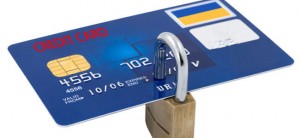Identity Theft
According to government and private estimates, over a million people are victims of identity theft each year. Identity theft occurs when someone steals your personal information and uses it to establish credit, borrow money, charge items or even commit crimes in your name. Individuals can obtain this information through stealing your mail, going through your garbage or by more high tech means such as “phishing”, “pharming”, and fraudulent e-mails or through automated voice or text messages. Here is  a list of steps customers can take to protect themselves:
a list of steps customers can take to protect themselves:
- Never respond to unsolicited requests for your social security number, account numbers, personal identification numbers (PIN) or financial data.
- Contact us only by using a verified web address or telephone number.
- Shred credit card, ATM receipts and any pre-approved credit offers you have received before discarding them.
- Open all credit card and bank statements as soon as you receive them and check them for accuracy.
- Avoid easy to figure out access and PIN codes.
- Obtain a copy of your credit report yearly and check it for accuracy. Under a recent amendment to the Fair Credit Reporting Act, consumers are entitled to a free credit report from each of three national credit-reporting agencies annually. Your free credit report can be obtained by clicking here or by calling (877) 322-8228.
- Use only secure sites when making online purchases. Secure pages begin with “https.”
- Pay for online purchases with a credit card to assure you get what you paid for and to limit your liability.
- Safeguard your SSN and check Earnings and Benefit statements annually for fraudulent use.
- REMAIN ALERT. Be suspicious of ID theft if you have been denied credit for no apparent reason or if you stop receiving financial statements in the mail.
If You Become A Victim Of Identity Theft
- File a police report. Get a copy of the report to submit to your creditors and others that may require proof of the crime.
- Contact the fraud departments of any of the three major cre
 dit bureaus to place a fraud alert on your credit file. The fraud alert requests creditors to contact you before opening any new accounts or changing information on existing accounts. The credit bureau is required to notify the other two bureaus after confirming your fraud alert. You will then receive a copy of your credit report from all three credit bureaus. See below for contact information for all three major credit bureaus.
dit bureaus to place a fraud alert on your credit file. The fraud alert requests creditors to contact you before opening any new accounts or changing information on existing accounts. The credit bureau is required to notify the other two bureaus after confirming your fraud alert. You will then receive a copy of your credit report from all three credit bureaus. See below for contact information for all three major credit bureaus. - Contact your banker and notify all of those with whom you have a financial relationship.
- Close immediately those accounts that you know or suspect have been tampered with or opened fraudulently.
- File your complaint with the Federal Trade Commission (FTC). The FTC maintains a database of identity theft cases used by Law Enforcement agencies for investigation. Additional information regarding identity theft can be obtained from the FTC at www.ftc.gov/idtheft or 1-877-ID-THEFT. (1-877-438-4338)
- Report check theft to check verification companies.
- Check the Post Office for unauthorized change of address requests.
Follow-up contacts with letters and keep all correspondence.
Phishing and Pharming are types of identify theft used by cyber-criminals to obtain personal confidential information fro m unsuspecting victims using spam, fraudulent e-mails, or false “look-a-like” websites. Often, the e-mail message will include a warning that there is a problem with the recipient’s account or that the account will be closed unless they reconfirm confidential information, such as account numbers, social security numbers and PIN’s. These e-mails are made to look like they came from a legitimate financial institution and will include bank logos, branding and a “From:” line disguised to look like they came from the financial institution. The e-mails will then contain a link to a web address where the recipient is asked to provide the confidential information.
m unsuspecting victims using spam, fraudulent e-mails, or false “look-a-like” websites. Often, the e-mail message will include a warning that there is a problem with the recipient’s account or that the account will be closed unless they reconfirm confidential information, such as account numbers, social security numbers and PIN’s. These e-mails are made to look like they came from a legitimate financial institution and will include bank logos, branding and a “From:” line disguised to look like they came from the financial institution. The e-mails will then contain a link to a web address where the recipient is asked to provide the confidential information.
In the case of Pharming, unsuspecting customers are redirected to false websites in order to steal confidential information. The perpetrators or “pharmer” can accomplish this in a variety of ways. One is by simply taking advantage of the customer making a slight misspelling when entering the bank’s web address or URL. Another method is through the use of Malware or malicious software. Malware is the term used for viruses, sypware or “trojan horses” that an individual may have on their PC. The Malware can be used to intercept your request to visit the bank’s website and redirect you to a counterfeit site that will look identical to the real site.
Yakima Federal Savings and Loan has instituted the following policies to protect you from Phishing and Pharming.
- We will never ask you to provide personal confidential information, passwords or account numbers via e-mail.
- If we send you an e-mail it will always be addressed to you personally and not to a general reference like “valued customer” or “support@yakimafed.com.”
- If Yakima Federal becomes aware of fraudulent e-mails going out to our customers, we will provide a prominent link on our home page that will alert customers to the specific nature of the fraud.
Further steps you can take to protect yourself:
- Never click on a link to Yakima Federal or any other financial institutions website from a third party website. Always type in our website name, or URL address, in the address bar of your browser or by using a “bookmark” directed to our web address.
- Never provide confidential information, social security numbers, bank account and credit account numbers to a website unless you have initiated the contact.
- Notify us immediately if you think you have been a victim of a phishing scheme.
- We recommend that customers install current versions of virus detection software, firewalls, and spyware scanning tools and regularly update these programs to combat new threats. We also recommend customers install all security updates and patches to their operating system and web browser.
Click here to download FTC Brochure on Fighting Back Against Identity Theft
Further Information on Identity Theft and Internet Fraud can be found at:
- Government-Wide ID Theft Home Page: http://www.idtheft.gov/
- Federal Trade Commission: http://www.ftc.gov/idtheft/ or 1-877-ID-THEFT.
- Federal Deposit Insurance Corporation: https://playmoneysmart.fdic.gov/resources
- Internet Crime Complaint Center: http://www.ic3.gov
- ChexSystems: To report ID theft and place a security alert on your ChexSystems report – https://www.chexsystems.com/identity-theft/identity-theft-information or 1-888-478-6536.
Credit Reporting Bureaus:
- Equifax: http://www.equifax.com
- Report Fraud: (800) 525-6285
- Order Credit Report: (800) 685-1111
- Experian: http://www.experian.com
- Report Fraud: (888) 397-3742
- Order Credit Report: (888) 397-3742
- TransUnion: http://www.transunion.com
- Report Fraud: (800) 680-7289
- Order Credit Report: (800) 888-4213
Social Security Administration
- Report Fraud: (800) 269-0271
- Order Benefit and Earnings Statements: (800) 772-1213






